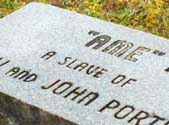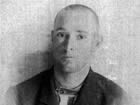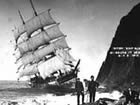Fire in the Bush:
A magazine article written by legendary Oregon writer Stewart Holbrook in the mid-1920s, based on his experience as a young man working on railroad logging crew. A wonderful picture of life in one of those logging camps during fire season.
By Stewart Holbrook — September 1926
Editor's Note: This is one of the finest stories legendary Oregon writer Stewart Holbrook ever wrote. In it, he draws upon his experience as a young man working on a logging crew, with steam donkey engines running cable yarders and "misery whip" crosscut saws. Although it takes place in the timberlands of British Columbia, the life of a logger was the same throughout the Pacific Northwest, and his story would have been absolutely familiar to loggers in Oregon too.
Here's his story:
For more than a week we had been speculating on the sky that appeared above the mountain across the inlet from camp. Varying in hue from a deep gray in the early morning to a feverish red at night, it got grayer and redder as the week passed. Old-timers among the loggers said "she was a dirty sky." The grizzled scaler allowed it was as dirty a sky as he had seen in forty years.
Each morning the sun had risen like a ball of fire, only to be completely hidden along toward noon as a smoky slate-colored haze fell slowly over everything. Occasionally, when the wind was from the south, stray flecks of burned-out embers floated in the air. One evening they had fallen thick as thistle-blows. When picked up and pinched between the fingers they were like black white powder, ashes.
All day Tuesday a sense of uneasiness pervaded camp. It had been muggy in the afternoon when we were yarding and loading the big fir logs; not a breeze had stirred. The sweat ran in great salty drops from our chins and noses as we strugled with the heavy cables. The blocks and the endless maze of rigging wailed a protest. When the drum on the donkey-engine turned, it seemed to snarl. Twice that day we had seen little puffs of smoke roll quickly up from dead punky logs as the fast-moving main line whipped to and fro across them. When underbrush broke, it cracked like a rifle.
Night came and found an almost silent forest. The bushes around camp sounded that uneen and ominous rustle that bushes give out before a thunderstorm. Now and again an unseen, unfelt wind gave our stovepipes an eery rattle as it sighed northward to Queen Charlotte Sound. It was fire-time in the British Columbia timber. Loggers and wild animals sniffed the air. But supper passed and nothing had happened.
The camp itslef was strangely quiet. Talk in the bunkhouse was hushed, as if by some sort of unspoken but mutual agreement. Even the poker game was mechanical. Puppet players saw and raised in low tones. The bleoved accordions of the Finns were silent. Two hundred raw loggers huddled together in twenty little shacks, and hardly a sound! When one of the younger boys let a calked boot drop from an upper bunk and strike the floor, he was softly yet fervently cursed.
So subdued was everything that I recall how strident seemed the chatter of the foreman's wife that came to us in a torturing staccato rom the fancy two-room shack in which they lived, somewhat apart from the rest of us. We could hear her sharp voice laughing at something her husband had said or done. She was always that way, talking and laughing. Just now she was telling her man what a fool he was for staying in the bush. Other men could make a living in town; why couldn't he? I heard her ask him that. We moved restlessly in our bunks and on the deacon-seats. All of us felt sorry for the foreman.
The wind rose and fell in short gusts. Not a crow could be heard from their favorite place near the pig-pen. No fox barked in the timber. The half-blind old camp dog, usually sleeping his feeble days away on the steps of the filer's shack, was uneasy. Tonight he limped up and down ... up and down ... and sniffing.
About half-past seven it happened. A short wail from the woods, turning in a flashg from a wail to a long piercing scream that chilled the spine and made the hair stand. It was the yarder's whistle, held down by the watchman. Never was fire-siren like the uncanny shriek of a donkey-engine breaking through a silent forest night ... and it shook us to life.
A rush for the flat-cars lined up on the side-track in camp — every one is ready — the locomotive sounds a warning blast — the donkey's screech is still cutting through our heads — hearts and ear-drums are pounding — the foreman gives the "highball": we're off to the bush.
Back a mile in the timber even now we can see a great billow of smoke — a nasty red flame whips in and out of the cloud — it's got a quick start. The donkey's scream is dying away in a long-drawn gasp. I picture the donkey surrounded by fire, slowly succumbing ... the gasp fades to a whisper ... the train pounds on ... clickety-click ... and a crash as we cross the switches.
Here we are at the scene. The fire is near the loading-works; not a big fire yet, but growing fast ... "Hit the dirt, boys," says the foreman. He quickly places his troops. A crew to dig fire-trenches, well back from the blaze but in its path; others, the fallers, get to work felling old dry snags, for these tinder posts will send fire over our heads, should they once begin to burn; hose-lines from the tank-car already are playing streams of water. The fire hisses at the water — and roars again.
Axes, picks, and shovels ... the fire-trenches ... stop it at the trenches ... got to ... Sweating cursing men work like mad giants. The fire is getting close to the trench; to us it seems like a frenzied monster, striking this way and that with deadly puffs of red and black. The weaklings drop picks and shovels and run backward, choking. The foreman stalks along the line; he pleads, praises, curses ... "Hold her, damn her, hold her!" ... The seasoned fire-eaters stick fast to the line; the monster roars louder as it nears our trench — gathering strength for a leap, we think. It hurries faster to smother us.
At seeral places along the line the fire has reached the trench. In spots it seems dying; we hear a cheer from some of the young boys: "We've got her by the ears!" The old-timers don't cheer; they keep digging — and sweating — and cursing. Throats are raw from smoke and fire ... God! for some water, air and water.
Suddenly the monster closes in around an old snag just inside the line. It hesitates a moment, as if throttling its prey. Fascinated, we watch it. Like a streak of light we see fire flash upward the entire side of the old dry trunk — and here burn a moment. We watch it, helpless. The wind lifts live embers of punk and sends them far over our heads, away into the timber.
In an instant new fires are springing up back of us, springing up out of the niht as if an unseen devil were hurrying through the woods with an invisible torch. The old fire is burning itself out along the trench ... but we see mocking faces in the smoke.
Tactics are changed. Crews run from one blaze to another, smothering them with dirt ... we smother one and two new ones appear. The air is full of sparks, and brands, and burning branches — and noise ... crackling, hissing, roaring noise ... noise of battle ... sometimes I think I hear the boom of faraway cannon; it is the crash and thud of great trees falling.
A dozen blazes are growing into big fires — fires on all sides, in front of us, in back of us — fire halfway up the mountain ... it snarls and bites ... it leaps at great tall trees, devours their life, and leaves silhouettes stark against the red background ... then leaps onward, hissing, snapping.
A human cry breaks through the roar — someone hurt. It is one of the fallers; a tree got him ... I see a limp form being carried to the railroad track and placed on the speeder ... This is my job, first aid ... I go — I look at the crushed thing on the speeder. First aid won't do — need a box.
Over the crooked and warped rails we run with the light car, four men and a corpse. The ties are gone; the rails are loose — off the track. We lift the car, push it, cram it somehow over the bad spots. Fire is close to the rails. Eyeballs swell and seem bursting. God! Is fire everywhere in the whole world? ... At last the opening ... fresh air — we breathe it, taste it, eat it ... Here's the camp ... seems uncanny that the camp can be so peaceful when there's battle less than a mile away.
We put the broken body on a bunk and throw a canvas over it ... Someone says its spirit is in Valhalla and not worrying about any damned forest fire.
A new danger appears. The fire has been slowly creeping down through the opening toward camp, creeping, creeping through underbrush and old logs, till now it rears its head close by the filer's shack. Hardly have our glazed eyes taken in what is happening when the roof of the washhouse breaks into flame. Almost at the same time shingles on the camp office are smouldering ... The whole works are hay-wire! We call the cook and flunkies to help ... pails, buckets, dishpans of water from the brook. The pigs strike a new note with their crying when the fire gains the bushes near the pen; it is terror, terror told as plainly as ever human voiced it. With a mad squeal of triumph they mass and break through the cedar bars. Once out of the pen they wander foolishly through the camp, lost and grunting with resentment.
The fat sweating cook curses as he waddles up the camp street with two pails half full of muddy water: "Can't these damned, snuff-chewing, oary-eyed loggers have a ire without burnin' the jeasly, cock-eyed old hay-wire camp?" His soft hands are blistered and bleeding from contact with many water-buckets. His eyes are bleary, and great drops of perspiration cling to his nose; tobacco-juice oozes from teh corners of his mouth and runs in little rivers down his chin. His usually fine, sweeping mustache is frayed and drooping. He has worked hard for an old man. And his able and continued profanity has helped all of us who must conserve our breath. He beats the flunkies with a bucket to make them hurry with more water ... Gradually, as we get control of the roof fires, the motif of his personality changes from shocking blasts to gentle and caressing curses.
At last we are sure the camp is safe. The roof of one shack has gone, and the sides of others re scorched a deep brown. The little house in the pig-pen is burned flat with the ground. But that is all. Small fires are burning in the old logs around camp, but they can hurt nothing now that the brush has gone.
The cook takes a fresh bite of plug and repairs to the cook-house.
Back in the timber a hazy blistering dawn lays the breeze. The fire keeps close to the ground. It is traveling on its belly, dozing sullenly in the morning quiet. Half-dead men, silent, driven, haggard, lean on shovels. They barely move — like meaningless figures in the background of a dream.
"Go to camp," the word is passed around. Shovels, axes, saws are dropped; no one speaks.
Down through acres of stark black specters the loggers plod, two by two and in small groups, tired, sagging, red-eyed. They walk through hot ashes and stumble over smouldering logs, stumble drunkenly on to what seems a heaven ... Camp.
Once there, they drop on benches, bunks, anywhere. They tell us the fire has gone over the hump, the mountain — gone to hell-an'-gone.
Food, food and drink, that's what — and sleep.
From the kitchen come clattering noises. The old cook, stiff from his unusual efforts and moving painfully, is mixing coffee in a wash-boiler — strong black coffee that curls your hair. And he has a flunky making toast, great thick slices of scorched bread. He calls toast a city fancy, and he wants to do his best. We hear him singing a hymn of thanks as he stirs the coffee. It is a ribald doggerel from Maine, "The Red Light Saloon" — the only song he knows.
The steaming brew is ready. Ah-h-h! Something like! She's jake now ... The loggers eat and drink. Things look better. Nervous laughs greet time-worn sallies. Snuff-boxes appear; pipes are filled. Sleep is forgotten when tired men feel the letdown. A few seek bunks, but no one goes into the shack where a canvas covers the hulk on an iron bed ... We can't move it till the next boat comes ... Saturday is freight-day.
The last man from the woods is the foreman. The worries of an entire company are traced in his haggard face. He stops to talk with us a moment. "Get some sleep," he says ... He goes to his little house.
We haven't seen his wife since the fire started. The cook says he saw her, and she was playing the phonograph in the front room, and singing.
The camp is again silent. One by one the loggers have gone to their bunks. The pigs have found their way back to the pen and have returned to the rich black mud and cedar roots, where they grunt softly, happy ... A smoky blue haze hangs over everything, barely admitting the vague rays of a red ball suspended overhead. Wispy dead embers, white like fireweed, fall listlesly ... Faintly I hear crows trying out their voices, as if afraid of the noise they make ... A big Dolly Varden leaps clear of the pool below and catches a bluebottle ... The fire has passed on.
The sleepy quiet makes me feel dreamy ... soft grunting of happy pigs ... languorous splashes in the pool ... far-away caw of crows ... thin blue mist.
Something grates my ear. It is the voice of the foreman's wife, so long still. "Now that your funny old woods is gone, we can go to town, can't we?" It is a demand, not a question ... "For God's sake, let me sleep." "Tell me we'll go to Vancouver next boat sure." Her voice is sharp. "An' anyway, if you had any guts we'd live in town all the time." ... Again the weary voice: "For God's sake let me sleep."
From where I lool in front of my shack I see one of the pigs lift up his head at this disturbing sound. He considers a moment, cocks his ear, and subsides with a short grunt. The grunt means something, perhaps disgust.
And since that time I have often wondered if old Elizear wasn't right. Elizear always fed the pigs, and talked to them by the hour. He said the pigs understood perfectly all human beings. He claimed they had an uncanny knack of human values. I know I felt just the way that pig's grunt sounded.
Editor's Note: This work is in the public domain due to non-renewal of its original 1926 copyright. My act of retyping it is not sufficiently transformative to justify asserting a fresh copyright, and no one else's similar action is either. In other words, don't let anyone tell you otherwise: This story belongs to you. It remains in the public domain. Do with it whatever you wish.































